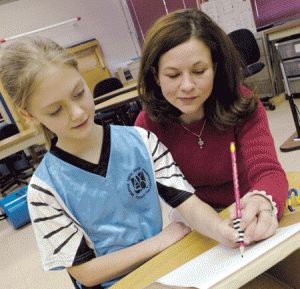 This topic was sparked by a conversation with a mom questioning whether or not an auditory processing difficulty could be picked up in our reading assessment. I may get into a bit of hot water with some professionals with this one, but I think it would be worth it.
This topic was sparked by a conversation with a mom questioning whether or not an auditory processing difficulty could be picked up in our reading assessment. I may get into a bit of hot water with some professionals with this one, but I think it would be worth it.
In the briefest of nutshells, an auditory processing difficulty means a child hears something different to everyone else, even though the ears have all picked up the same waves; the reason is poor coordination between the ears and brain. But this is not a newsletter on processing difficulties. It stemmed from the question on whether an assessment of reading could pick up the difficulty or if the mom should take her daughter to an OT. The answer is “no” on both fronts.
Our assessment covers six areas of reading namely, single word reading, decoding, comprehension of silent and out loud reading, as well as speed and accuracy of reading. This gives a profile of a child’s reading age and points to possible causes of the perceived difficulty with reading (which is a very broad term). If we do an informal spelling assessment, we may suspect a complication in auditory processing but certainly cannot diagnose it.
In a similar vein, the primary function of an OT (occupational therapist) is to develop gross and fine motor skills – not auditory processing. And no, a speech therapist is not the right avenue either as their role is to develop the articulation of speech sounds – not auditory processing.
 There is of course a degree of overlap across the professionals listed above: a child who says /w/ for /r/ may attend speech therapy to correct the tongue placement, occupational therapy for the broader muscular difficulties that resulted in the poor articulation and remedial therapy to correct the spelling difficulty that occurred because “ring” and “wing“ sound the same when the child says it and therefore are spelt the same. Incorporating spelling – that involves the /r/ – into speech and occupational therapy sessions is a means of consolidation.
There is of course a degree of overlap across the professionals listed above: a child who says /w/ for /r/ may attend speech therapy to correct the tongue placement, occupational therapy for the broader muscular difficulties that resulted in the poor articulation and remedial therapy to correct the spelling difficulty that occurred because “ring” and “wing“ sound the same when the child says it and therefore are spelt the same. Incorporating spelling – that involves the /r/ – into speech and occupational therapy sessions is a means of consolidation.
While there may well be overlap, it is always best to consider the primary function of the professional your child may be seeing. The mom mentioned above was referred to an audiologist who uses specific equipment to determine how information is heard and processed.
-Delia Tranter





